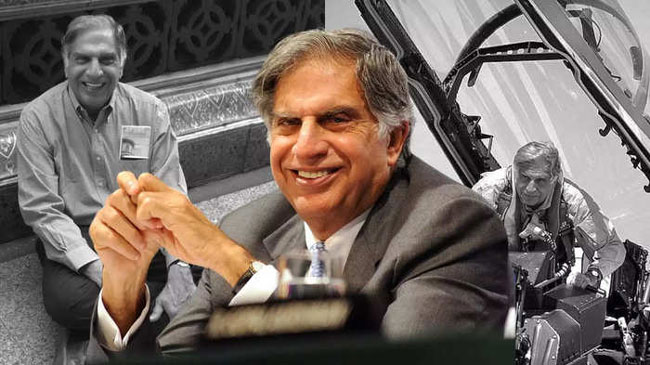Indian industrialist and former Tata Group Chairman, Ratan Tata, passed away on October 9 in a Mumbai hospital. Throughout his life, Ratan Tata left an indelible mark not just in the business world but also in philanthropy, education, and healthcare. Here are 10 significant and lesser-known facts about the iconic leader and his remarkable journey:
1. Early Life and Family Background
Ratan Tata was born on December 28, 1937, in Mumbai. He was the son of Naval Tata and Sooni Tata. His childhood was not easy, as his parents divorced when he was just 10 years old. Following this, Ratan Tata was raised by his grandmother, Navajbai Tata. He also has a younger brother named Jimmy Tata.
2. Education and Early Career
Ratan Tata received his early education at the Cathedral and John Connon School in Mumbai, and later attended Bishop Cotton School in Shimla. For higher education, he went to the United States and completed a degree in architecture from Cornell University in New York. He further pursued management studies at Harvard Business School.
In the early days of his career, Ratan Tata worked at Tata Steel’s Jamshedpur plant, where he did hard physical labor, including shoveling limestone in the blast furnace. This experience helped shape his leadership skills and grounded his understanding of business from the grassroots level.
3. Becoming Chairman of Tata Sons (1991)
In 1991, Ratan Tata succeeded JRD Tata as the Chairman of Tata Sons, the holding company of the Tata Group. This was a critical period as India was undergoing economic liberalization, and Ratan Tata skillfully led the group to capitalize on the new opportunities. Under his leadership, Tata Group expanded not only in India but also internationally, establishing itself as a global business powerhouse.
4. Global Acquisitions
One of the key highlights of Ratan Tata’s tenure was the acquisition of several high-profile international brands. In 2008, Tata Motors acquired the iconic British car brands Jaguar and Land Rover, which was a major achievement for the company. Other acquisitions under his leadership included the Ritz-Carlton hotel chain in the US and Piaggio Aero, an Italian aerospace company. These deals elevated the Tata Group’s global standing.
5. Business Excellence
During Ratan Tata’s 22-year tenure, Tata Group’s revenue grew by 40 to 50 times. He expanded the company’s operations to more than 100 countries and managed over 100 different companies under the Tata banner. Under his leadership, Tata Group’s annual revenue increased from $5 billion to over $100 billion.
6. Awards and Honors
Ratan Tata’s contributions have been recognized both in India and globally. In 2000, he was awarded the Padma Bhushan, and in 2008, he received the Padma Vibhushan, India’s third and second-highest civilian honors, respectively. Internationally, he was honored by governments of countries like Singapore, Italy, France, Japan, and Australia. In addition, Queen Elizabeth II appointed him as an honorary Knight Commander of the Order of the British Empire (KBE).
7. Contributions to Education and Healthcare
Apart from business, Ratan Tata was deeply involved in philanthropic activities, particularly in the fields of education and healthcare. Under his leadership, the Tata Trusts and the Tata Education and Development Trust donated billions of dollars to educational institutions, supporting scholarships and infrastructure development. Tata Group also funded the creation of world-class cancer treatment centers and hospitals.
8. Philanthropy in Healthcare
Ratan Tata’s efforts in the healthcare sector were significant, particularly in the fight against cancer. He played a pivotal role in establishing state-of-the-art hospitals that focus on cancer treatment. His hospitals are regarded as some of the best in the country for cancer care, reflecting his dedication to improving healthcare facilities in India.
9. Love for Animals
Ratan Tata was known for his love for animals, especially dogs. He was a passionate advocate for animal welfare and funded multiple projects focused on the care and protection of stray animals. He also opened a state-of-the-art veterinary hospital in Mumbai, built at a cost of INR 165 crores, where stray and abandoned dogs receive treatment and care.
10. Retirement and Continued Philanthropy
Ratan Tata retired as the Chairman of Tata Sons in 2012 but continued to be actively involved in philanthropy through the Tata Trusts. He used his vast resources and influence to promote social causes such as rural development, poverty alleviation, women’s empowerment, and support for startups. Even after retirement, his guidance and vision continued to shape India’s business landscape.




